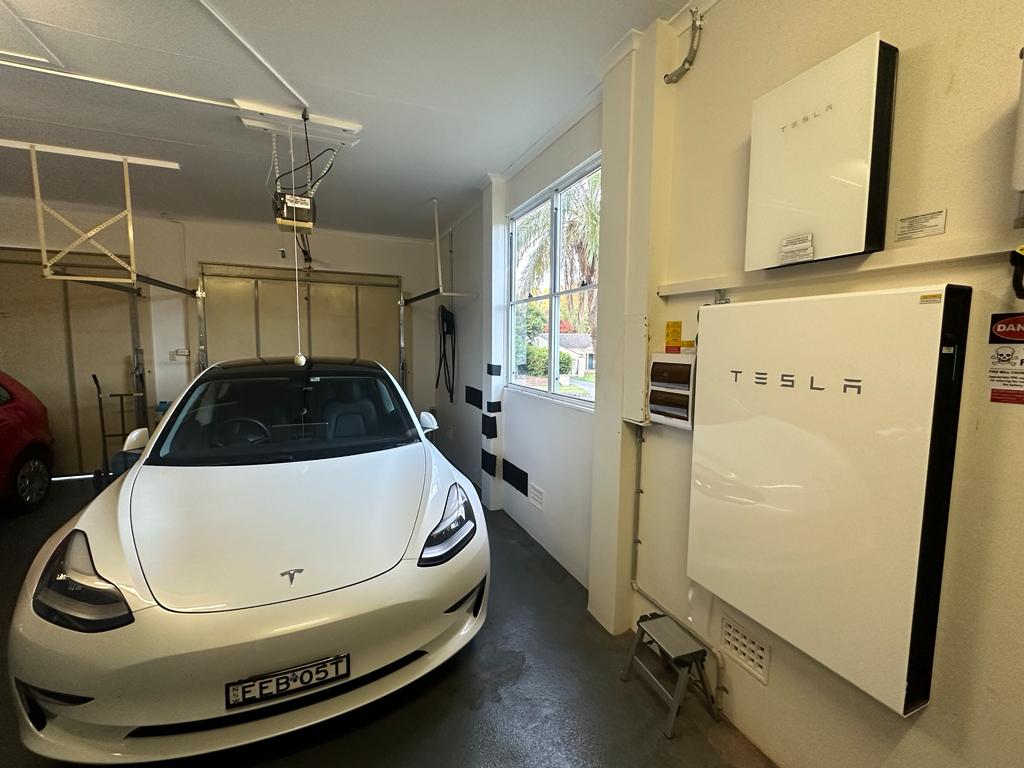Cuthill Electrical Contractors, a trusted name in Sydney for over 5 years, understands the growing interest in harnessing the power of the sun.
Solar panels are a fantastic way to reduce your reliance on the grid and shrink your electricity bills. But what about those times when the sun isn’t shining? This is where solar battery storage comes in.
In this comprehensive guide, Cuthill Electrical Contractors will explore the advantages and disadvantages of installing a solar battery system alongside your solar panels in Sydney.
We’ll help you decide if solar battery storage is the right fit for your home and energy needs.
Types of Solar Batteries
The world of solar batteries offers a variety of options to suit your needs. Here’s a breakdown of the most common types:

- Lithium-ion (Li-ion): The current leader in solar battery technology, Li-ion batteries offer high efficiency, long lifespans, and deep discharge capabilities. Popular brands in Australia include Tesla Powerwall, LG Chem RESU, BYD Battery Box, and Samsung SDI.
- Lead-acid: A more traditional and budget-friendly option, lead-acid batteries are less efficient and have shorter lifespans than Li-ion batteries. However, they may be suitable for smaller applications.
The Benefits of Solar Battery Storage
There are many compelling reasons to consider adding solar battery storage to your solar panel system in Sydney:- Energy Independence: Solar batteries allow you to store excess solar energy generated during the day and use it at night or during peak demand periods. This translates to significant savings on your electricity bills and a reduced reliance on the grid.
- Blackout Backup: Power outages are a fact of life in Sydney, but with a solar battery system, you won’t be left in the dark. Solar batteries provide backup power, ensuring your essential appliances and lights remain operational during a blackout.
- Time-of-Use Savings: Many electricity retailers in Sydney offer time-of-use (TOU) billing, where electricity prices fluctuate throughout the day. Solar batteries allow you to store solar energy during off-peak hours and use it during peak periods when electricity costs are highest.
- Environmental Sustainability: By maximising your use of self-generated solar energy, you’ll be reducing your dependence on fossil fuels and your overall carbon footprint. This contributes to a cleaner and more sustainable future for Sydney.
- Government Incentives: The Australian government offers a variety of financial incentives to encourage the adoption of solar battery storage. These incentives can significantly reduce the upfront cost of installation, making solar batteries a more attractive option.

Considering the Downsides of Solar Batteries
While solar battery storage boasts numerous advantages, it’s essential to be aware of some potential drawbacks:- Upfront Cost: Solar batteries are a significant investment. While government incentives help, the initial outlay can be daunting for some homeowners.
- Limited Capacity: Current battery technology limits the amount of energy you can store. This may not be suitable for households with high energy consumption.
- Maintenance Considerations: Solar batteries, like any other technology, require occasional maintenance. While minimal, factor in potential maintenance costs when making your decision.
- Efficiency Losses: There are some energy losses during the process of charging and discharging batteries.
- System Complexity: Adding batteries to your solar panel system increases its complexity. Ensure you choose a reputable solar installer with expertise in battery storage systems.
So, are Solar Batteries Right for You?
The decision to add solar batteries to your Sydney home depends on several factors, including:- Your energy consumption habits: If you use a significant amount of electricity in the evenings, batteries become more attractive.
- Your budget: Consider the payback period – the time it takes for the cost savings from batteries to offset the initial investment.
- Your energy goals: Do you prioritise energy independence, backup power, or cost savings?
- Government incentives: Research available rebates and incentives in your area to make the decision more financially viable.







